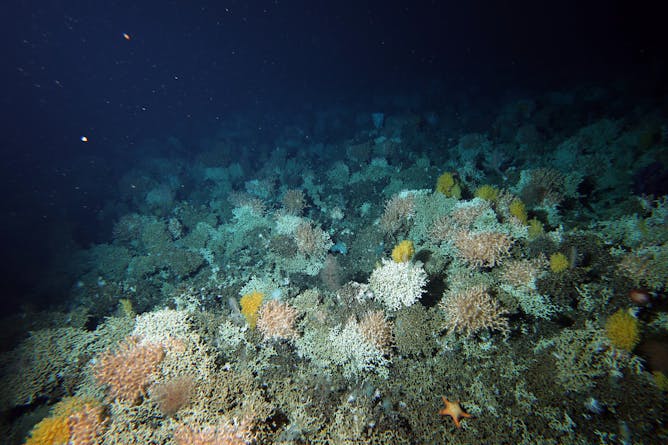|
|
|
Editor's note
|
|
Being showered in money you didn’t expect is a nice problem to have. The government has ended the year an extraordinary $31 billion richer than it expected at the time of the May budget - or it would have, had it not decided to spend half of it, mostly in the form of as-yet-unannounced tax cuts.
Which will be okay if the extra riches last. One reason they might not, is that the resurgence in tax takings from mining companies mightn’t last if the latest resource price boom peters out.
Another is that mining companies (and technology companies) are adept at shifting profits into lower tax jurisdictions such as Singapore, Ireland and Bermuda. Last month the Tax Office won half a billion dollars from BHP in a dispute over whether its marketing hub in Singapore was a device to avoid Australian tax. BHP settled without making an admission.
One response is to tighten tax laws, but it’s a never ending battle. Another, outlined this morning by Ross Garnaut, Craig Emerson and Reuben Finighan is to replace Australia’s system of company tax with a simpler system they are calling “cashflow tax”. It would tax only what came in minus what went out, excluding what went out in interest payments and non-market fees paid to overseas affiliates. They reckon it could raise more tax at a lower
rate, and there would be less need to cut the rate. They think it would also boost capital investment and cut corporate debt. Too good to be true? They road-tested it at the Melbourne Economic Forum last week to a generally positive reception. What do you
think?
|
Peter Martin
Editor, Business and Economy
|

|
|
Top story
|

A simpler company tax system would collect more and could fund a lower rate.
Shutterstock
Ross Garnaut, University of Melbourne; Craig Emerson, Victoria University; Reuben Finighan, University of Melbourne
The budget looks good, for now. But the surge in taxable profits will subside as companies find ways to shift profits offshore. We've come up a better way to tax onshore what happens onshore.
|

Solenosmilia coral reef with unidentified solitary yellow corals.
CSIRO
Nic Bax, CSIRO; Alan Williams, CSIRO
In the cold southern oceans, underwater mountains support deep-sea reefs.
|

The issues surrounding the use of genetic data are complex.
image created by James Hereward and Caitlin Curtis
Caitlin Curtis, The University of Queensland; James Hereward, The University of Queensland; John Devereux, The University of Queensland; Karen Hussey, The University of Queensland; Marie Mangelsdorf, The University of Queensland
Police have powerful new genetic tools. How are we going to regulate their use? A Genetic Data Protection Act is one solution to ensure confidence in the way DNA is accessed and used.
|
Environment + Energy
|
-
Kate Dooley, University of Melbourne
Three years after the Paris Agreement, negotiators have finally agreed (most of) the rules for its implementation. But there is still no way to compel countries to deepen their climate ambitions.
|
|
Science + Technology
|
-
Adam Henry, UNSW; Greg Austin, UNSW
Austraia's first Cyber Incident Management Arrangements are a good start, but the government needs to better engage with private companies to prevent and manage cyber attacks.
|
|
Politics + Society
|
-
Andy Kaladelfos, UNSW; Bianca Fileborn, UNSW; Lisa Featherstone, The University of Queensland; Shirleene Robinson, Macquarie University; Yorick Smaal, Griffith University
A parliamentary inquiry looking at hate crimes against LGBTIQ people could acknowledge injustices in how past cases were handled, and take steps to ensure better reporting mechanisms.
-
Michelle Grattan, University of Canberra
McCormack must live in some parallel universe if he ever thought Broad's account of flying off on an overseas date, followed by an apparent move to blackmail him was just "a personal matter".
-
Michelle Grattan, University of Canberra
Labor deputy leader Tanya Plibersek told The Conversation the ALP wants voters to see the party as "responsible and progressive".
-
Adrian Beaumont, University of Melbourne
The latest Fairfax-Ipsos and Essential polls give a strong lead to Labor, with some interesting – and variable - detail on the attributes voters see in the leaders of the two major parties.
-
Michelle Grattan, University of Canberra
Rudd told the conference the Coalition had "a very robust" partner in the "Murdoch party" which had an ideology.
|
|
Health + Medicine
|
-
Karen Anderson, Edith Cowan University
The dying person may face an inner struggle. They may want to be involved in activities but may not have the physical and emotional capacity to deal with the heightened stress and stimulation.
|
|
Arts + Culture
|
-
Julie Shiels, RMIT University
Through animation, video, light and sound, Theatre is Lying exposes how visual art, performance and theatrical devices can interrogate what is real and what is not.
-
Adam Turner, University of Newcastle
Tidelands, is a speculative story about half-human/half-siren beings who live in the coastal Queensland town of Orphelin Bay. Unfortunately, it is not always a success.
|
|
Cities
|
-
Julie Lawson, RMIT University; Laurence Troy, UNSW
Labor has made a substantial commitment to tackling inequality in Australia, but has taken a second-best approach to overcoming the huge shortfall of social housing.
|
|
| |
Featured jobs
|

|
CSIRO — Brisbane City, Queensland
|

|
RMIT University — Melbourne, Victoria
|

|
University of Otago — Dunedin, Otago
|

|
University of Tasmania — Hobart, Tasmania
|
|
|
|
| |
| |
| |
| |
| |
|
|
|
|
|
|
|